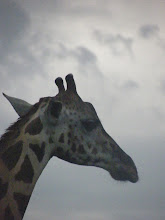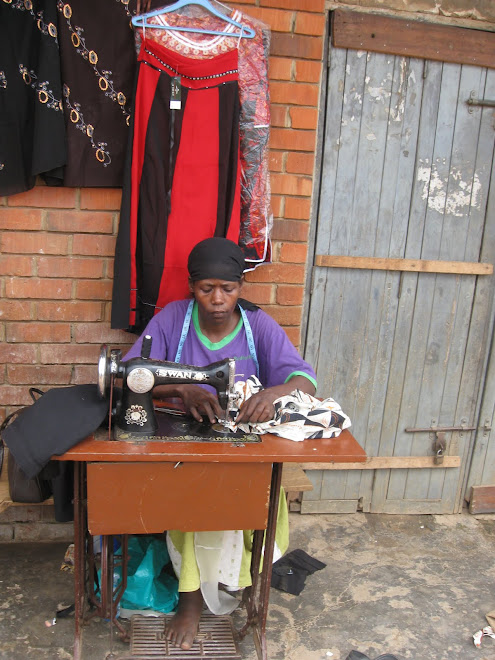Yes, I realize it has been months since I've written anything here. A lot of interesting things have happened but time to write about them is almost impossible to find. Plus, internet capacity continues to earn me ever higher points in patience.
For those who are interested, here are some highlights from the last few months: my friends Margie and Alana visited from Ireland and we spent a weekend in a cottage on Zanzibar with Steph and two of her colleagues from Dar es Salaam; I threw up on the two-hour ferry ride from Zanzibar to Dar starting a chain reaction among the other passengers; my daughter Marti visited me to celebrate my 60th birthday and we spent a long weekend in Murchison Falls, saw two lions and two leopards on a game drive, were attacked by a giant crocodile on a Nile boat ride, and a good time was had by all; I moved to a new apartment and the monkeys from Salama Springs have apparently followed me, hanging around on the porch like they're paying rent; I bought a 1994 Toyota Carib and I have joined the madness that is Kampala traffic; Moses loves the new crib as he can come and go at will through an open window and has a huge compound to roam around in. That's about all the personal stuff that's been going on. My God, even in Africa my life sounds boring... um, except for the crocodile incident.
But work proceeds at a lightening pace, everyday more interesting than the last. In March, I travelled to Lira in Northern Uganda with the BFL Market Linkages director and other BeadforLife staff to investigate the possibility of starting a shea nut project employing some of the poorest women in that region. The trip was long over very rough roads in very hot weather. Lira is a fairly good-sized town which has been severely affected by the twenty-year war with the rebels of Joseph Kony's Lord's Resistance Army. The town itself is flooded with rural villagers who settled there after the IDP (internally displaced persons) camps were closed two years ago. As we headed into the rural area north of Lira Town, we saw evidence of the war's destruction everywhere. But it was not until we interviewed individual women for the project that the devastation to human life became clear. Every single woman we talked to had lost family members in the conflict with the rebels. Husbands slaughtered in front of their families, children abducted and lost, homes and villages burned, livestock and livlihoods stolen, each woman caring for as many as 9 and 10 children orphaned by friends or relatives. I've attached some pictures of the region and the folks who live there as no narrative can accurately describe this situation.
And for an upbeat update- BeadforLife has had coverage on 2 national tv shows in the last 6 weeks; the News Hour with Jim Lehrer and the Today Show. The response has been amazing - which accounts somewhat for the fast pace of work these days. It's fun to tell some of the beaders that their interviews were seen by over 19,000,000 people in the U.S. The most common response is a wide-eyed "Ehh-hhh!?" uttered in kind of a rising and falling bass melody. If/when I ever leave here, I think the musical language is one of the things I'll miss the most.
Some friends from the U.K. and U.S. stayed with me for a few weeks while they were doing workshops at various youth-centered NGO's here. One was an orpahanage called M-LISADA which is really an intriguing place. Briefly, the orphanage was started in 1999 by five young men who were street musicians and orphans themselves. Today, there are 74 children from 4 to 20-years-old who call the orphanage home. Most were street children abandoned by overwhelmed parents or orphaned through AIDS. Their stories are nightmares. True, the building they occupy is a wreck and the children usually eat only one meal per day, but they are safe and astonishingly happy to be there. Part of it is the care they receive, mainly from one another and part of it has to do with the way the orphanage supports itself. The founders, now in their mid- to late twenties, have taught their musical skills to the children and M-LISADA now has an accomplished brass band, traditional dancers, tumblers and acrobats and musicians who use traditional African instruments. They have become well-known in Kampala and are enlisted to perform at many local functions. The pictures I've attached are from a special performance they did for my friends and I on a Sunday afternoon. This place is a stunning example of what can be accomplished by "nonprofessionals" when they are guided by passion and experience and strength. The motto there is "Music to the Rescue!" Indeed.
Tuesday, May 19, 2009
Subscribe to:
Comments (Atom)







